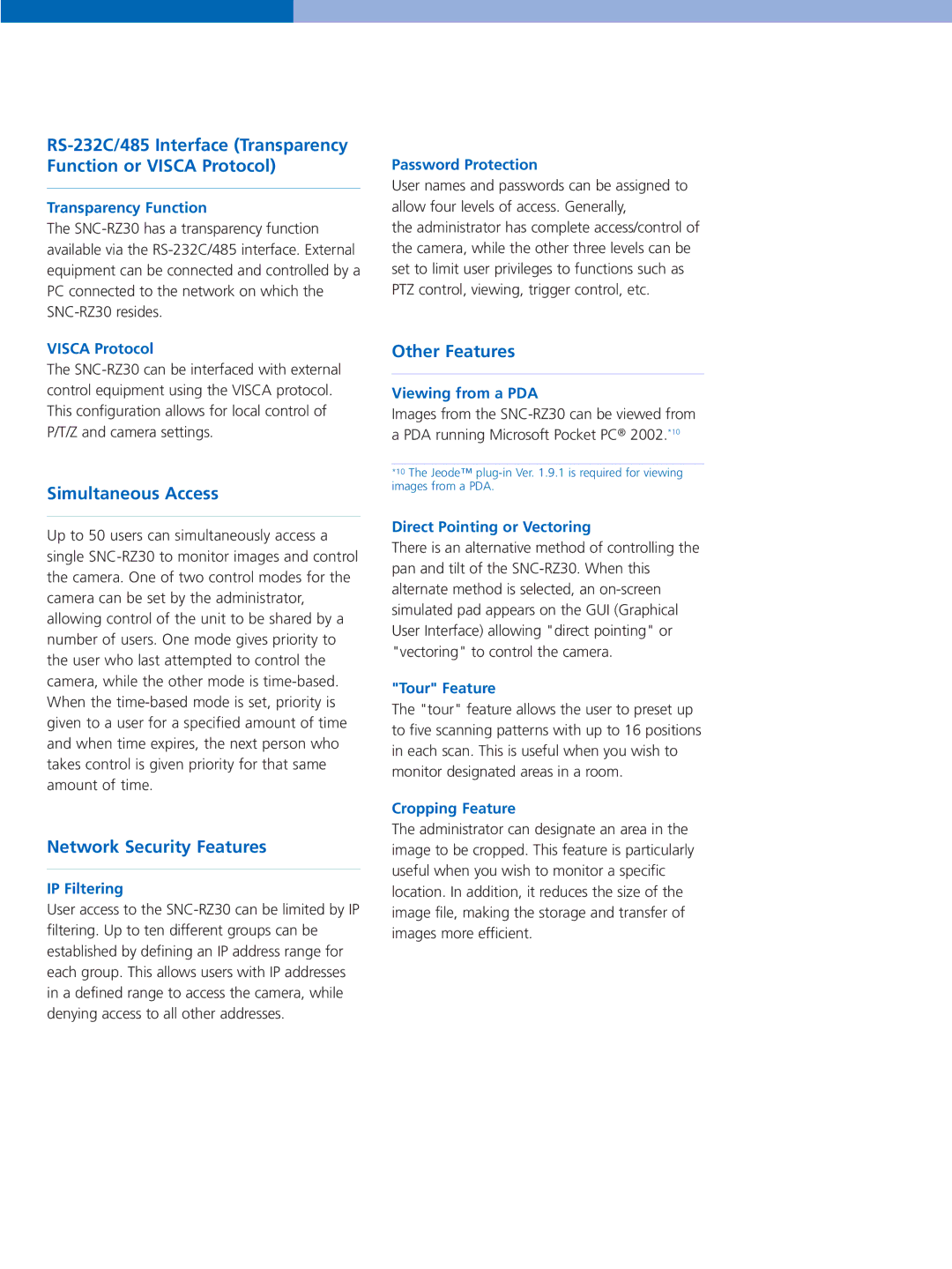RS-232C/485 Interface (Transparency Function or VISCA Protocol)
Transparency Function
The SNC-RZ30 has a transparency function available via the RS-232C/485 interface. External equipment can be connected and controlled by a PC connected to the network on which the SNC-RZ30 resides.
VISCA Protocol
The SNC-RZ30 can be interfaced with external control equipment using the VISCA protocol. This configuration allows for local control of P/T/Z and camera settings.
Simultaneous Access
Up to 50 users can simultaneously access a single SNC-RZ30 to monitor images and control the camera. One of two control modes for the camera can be set by the administrator, allowing control of the unit to be shared by a number of users. One mode gives priority to the user who last attempted to control the camera, while the other mode is time-based. When the time-based mode is set, priority is given to a user for a specified amount of time and when time expires, the next person who takes control is given priority for that same amount of time.
Network Security Features
IP Filtering
User access to the SNC-RZ30 can be limited by IP filtering. Up to ten different groups can be established by defining an IP address range for each group. This allows users with IP addresses in a defined range to access the camera, while denying access to all other addresses.
Password Protection
User names and passwords can be assigned to allow four levels of access. Generally,
the administrator has complete access/control of the camera, while the other three levels can be set to limit user privileges to functions such as PTZ control, viewing, trigger control, etc.
Other Features
Viewing from a PDA
Images from the SNC-RZ30 can be viewed from a PDA running Microsoft Pocket PC® 2002.*10
*10 The Jeode™ plug-in Ver. 1.9.1 is required for viewing images from a PDA.
Direct Pointing or Vectoring
There is an alternative method of controlling the pan and tilt of the SNC-RZ30. When this alternate method is selected, an on-screen simulated pad appears on the GUI (Graphical User Interface) allowing "direct pointing" or "vectoring" to control the camera.
"Tour" Feature
The "tour" feature allows the user to preset up to five scanning patterns with up to 16 positions in each scan. This is useful when you wish to monitor designated areas in a room.
Cropping Feature
The administrator can designate an area in the image to be cropped. This feature is particularly useful when you wish to monitor a specific location. In addition, it reduces the size of the image file, making the storage and transfer of images more efficient.

